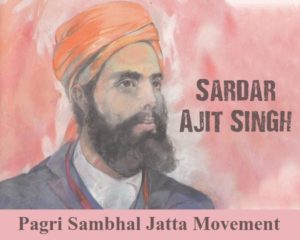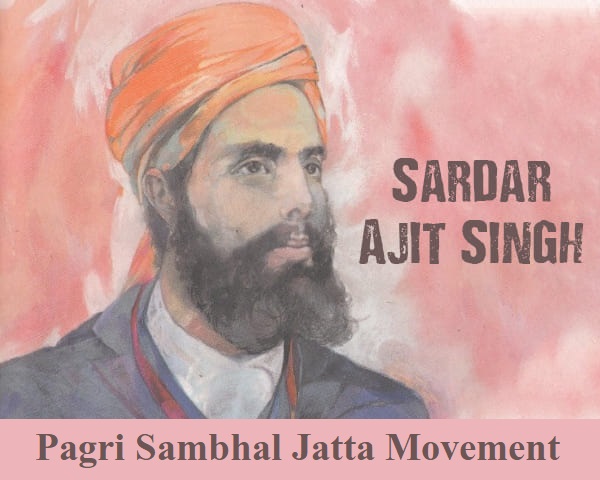
Ajit Singh was born on 23 February 1881 in Khatkar Kalan village of Jalandhar district, Bhagat Singh’s father Kishan Singh was his elder brother. The younger brother was Swaran Singh, who had gone through tuberculosis in jail during the freedom struggle at the age of 23 years.
The father of three, Arjan Singh, was associated with the carrier Congress Party of the freedom struggle and the three brothers also joined him.
The three brothers passed the matriculation examination from Sai Das Anglo Sanskrit School Jalandhar and Ajit Singh studied law from Bareilly College in 1903-04, in 1903 he was married to Harnam Kaur, the cherished daughter of Sufi ideological Dhanpat Rai of Kasur.
In 1906, the Calcutta Congress was held under the chairmanship of Dada Bhai Nairoji, where he was greatly influenced by Bal Gangadhar Tilak and returning from there, the two brothers, Kishan Singh and Ajit Singh, founded the Bharat Mata Society or Anjuman-Muhabbane Watan and anti-British books. Started printing
The British government brought three laws
In 1907, the British government brought three anti-peasant laws, against which a feeling of fierce anger arose among the farmers of Punjab.
Ajit Singh went ahead and organized the farmers and a series of meetings started all over Punjab, in which senior Congress leader of Punjab Lala Lajpat Rai was called.
These three laws have been mentioned by Bhagat Singh in his above article –
New Colony Act, under which farmers’ land could be confiscated, increased Malia (revenue) and increased rates of Bari Doab canal water.
Lala Banke Dayal, the editor of Jhang Syal magazine, who joined the movement to quit the police job, read a poignant poem – Pagdi Sambhal Jatta – in a large gathering in Lailpur in March 1907, which described the agony of farmers’ exploitation.
What became so popular that the name of that peasant resistance became the turban-handled Jatta movement in the name of poetry, the effect of which can be seen after 113 years on the peasant movement of 2020-21, when the farmers were again afraid of losing their land Has happened.
On 21 April 1907, the speech given by Ajit Singh at such a large meeting in Rawalpindi, was considered by the British government to be a very rebellious and seditious speech, and as on today, a case was registered under 124-A. There were 33 such meetings across Punjab, out of which Ajit Singh was the main speaker.
Also Read: DEATH TOLL FROM CORONA IN AMERICA CROSSES 5 LAKH, 5 DAYS MOURNING

















































